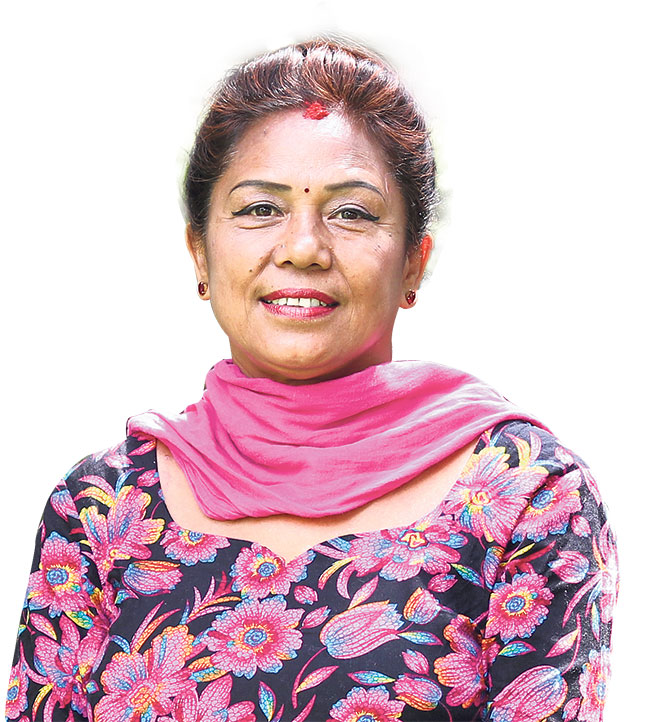In her late 50’s, she feels young and vibrant at heart. Shashikala Manandhar is one who deeply fell in love with her poetry that she penned at the age of 14. A devotee of literature, she shares an intimate bond with writing for which she has dedicated her entire life. Till now, she has penned more than a dozen novels and over two dozen short stories, child stories, and poetry collections. Her novel ‘Shaili’ has become a bestseller.
Also recognized as the first female Nepal Bhasa novelist, she had received numerous awards including ‘Chhitadhar Hridaya Rastria Pratibha Puraskar’ (2057), ‘Bishwa Nari Nepali Sahitya Samman’(2071), and ‘Satyamohan Joshi Satabdi Padak’ (2073). After retiring from her long civil service, her last assignment being that of a gazetted second class officer at Bansapati Bibhag, she has more time in hand to pursue her passion. She currently runs a weekly literary program at Newa FM.
In an interview with My City’s Sonam Lama, Manandhar talked about her over three-decade-long journey in writing.
Life on the road


What are the most important aspects of writing? What subject matter does your writing deal with?
From what I have so far experienced, I believe carrying out an intense research beforehand is one of the significant aspects of writing. I personally prefer travelling to places because that helps me to develop my story further. All of my writings speak of the incidents that have deeply moved or touched me. They could come from daily happenings or from various travels to special areas. My writings basically center on the social and cultural issues. I prefer writing on women’s issues but that does not keep me away from representing the voices of men in the society.
Do you keep your readers in mind while writing?
Although many of my writings mostly reflect the cultural set-up, they are subject matters that many people in the society could relate to. For me, writing has become a medium to express my thoughts and feelings and there are very few write-ups that I have written keeping the readers in mind. However, while writing children’s stories I make sure to keep readers in mind in order for it to become comprehensible for children. It is important to write in simple language making a careful choice over the dictions that are used.
From running radio programs to writing and working as a scientific officer with the government, how challenging was it to wear different hats?
I started writing at the age of 14. With time, the amount of opportunities and responsibilities increased and I could not afford to miss out on any of them. It was then I started to preplan my work schedule and manage my time. Unlike many of the other women who are encountered with numerous responsibilities and duties once they get married, I have had the privilege of spending my life with my parents. I believe being single has made it quite easier for me to focus on my priorities in a much liberal manner and live upon every opportunity that I have so far received.
How do you think your writings have made an impact or contributed to the community?
Whenever I visit different places within the community or across the country for any literary event, people make reviews and comments on my novels and other works. That makes me feel satisfied and gives me a sense of contentment. I remember the time when I had attended an event in Sikkim a few years ago. I had introduced my short story ‘Chha ota bharyang’ and the readers there absolutely appreciated my work. I have received many awards for being the first female Nepal Bhasa novelist, and I feel elated to have told many untold stories of the community through my pen.
What are you currently working on?
It has been about a year since I have retired from my work as a scientific officer, so now I am thinking of investing much of my time writing books. The novel called ‘Matinaya Sagarmatha’ that I wrote in 2063 is being translated into Nepali from Nepal Bhasa. The novel is entitled ‘Prem ko Sagarmatha’ which elucidates the journey of the first couple who got married on top of the Mount Everest. I have been looking forward for the book to get launched soon. The other story that I am currently working on deals with the social issues that an oppressed caste group in Newar community tends to face. It centers on the people belonging to the community.


































